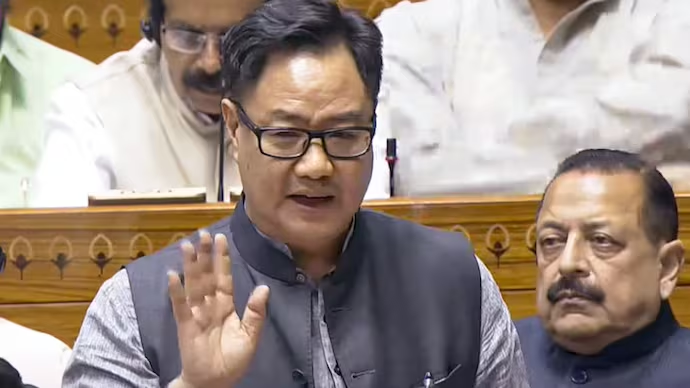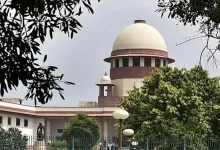
The biggest change that is being brought in with the Waqf (Amendment) Bill, 2024, is the abolition of Section 40, which allowed the conversion of any land into Waqf property by the Waqf Board. Law Minister Kiren Rijiju called it the “most draconian” provision of the Waqf Act during a debate in Parliament on Wednesday. Rijiju was defending the Waqf Amendment Bill after tabling it in the Lok Sabha on Wednesday said the Bill was retrospective and doesn’t “snatch” any land from the Muslim community, as it was being touted by some Opposition leaders. He said the Waqf Amendment Bill would be renamed UMEED Bill, Unified Waqf Management Empowerment, Efficiency and Development Bill.
The Waqf Board’s decision was final, unless revoked or modified by the Waqf Tribunal. Under the Act, decisions of the Tribunal are final and appeals against its decisions in courts are prohibited, according to a statement by the Ministry of Minority Affairs. The Waqf Amendment Bill omits the provisions deeming finality to the Waqf Tribunal’s decisions and its orders can be appealed in a high court within 90 days. There are over 14,000 litigations over Waqf properties, according to Rijiju. If unhappy with Waqf Board and Tribunal decisions, one can now approach the courts.
The Bill proposes that the power to decide if any property is Waqf property should be with the District Collector. BJP leaders say that the “misuse” of Section 40 has resulted in widespread conversion of private properties into Waqf properties, and triggered a communal divide in the country. The Catholic Christian community wants the Waqf Bill to be passed at the earliest. He presented the example of Cherai, a fishing village in Kerala’s Kochi, where over 600 Christian families and the church approached the Joint Parliamentary Committee on the Waqf Bill over their land being claimed as Waqf land.
He also spoke about Haryana’s Jathlana village where gurdwara land was claimed as Waqf property. The Waqf Amendment Bill, now renamed the UMEED Bill, will also do away with the provision of ‘Waqf by user’, by which properties could be deemed Waqf property based solely on prolonged use for religious purposes. Trying to explain the arbitrariness of the Waqf Act in converting properties into Waqf property, Rijiju said the Parliament building, Delhi airport premises and the CGO complex would have been declared Waqf properties, and this is what the new Bill seeks to prevent.




